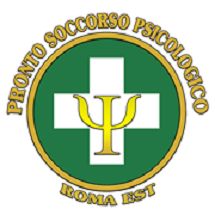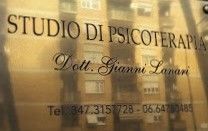
__________________________________________________
WINE
AND PSYCHOLOGY
( srpski jezik )

Tasting
Wine
When we taste wine we first detect a smell, scent or perfume and then a taste of
that wine -
that’s exactly what our brain interprets while being simultaneously bombarded
with various
sensations. Alkaloids generate bitter taste, sugars generate sweetness, acidity
generates
sourness, and ions of salt generate saltiness. A cherry on top is a sense of
‘sweet saltiness’,
which is of course umami. So, what happens with the brain at this point in time?
It is over-
stimulated and simply cannot differentiate so many sensations simultaneously.
For ordinary
winelovers it is often assumed that they are unable to pick scents of bananas,
ripe pears or
anything dry or semi-dry on the nose, as how on earth wine can be dry when it is
actually wet!?
A beginner is only able to say something to the effect that he or she does like
that wine, or
does not. Actually, a real problem is caused in that process of fine
differentiation of tastes and
smells. If one senses too many tastes and aromas at once, the brain is unable to
process that
many stimuli at once, so it is not a surprise that in such instances, the brain
only ‘screams’
simple sentences like: ‘I do like this’, or ‘I don’t like that’.
A Sommelier Please!?
Anyone who enrolled in a sommelier course probably remembers what an ‘Aroma
Kit’ is. Many
sommeliers were struggling when trying to differentiate various tastes and
aromas; however
that is a skill that can be learned. The ‘Aroma Kit’ is a briefcase
containing about 100 different
aromas ‘held’ in small bottles. Each bottle equals a single aroma! Every
time when you inhale
an aroma individually, properly separated from others, you would certainly
remember it. In the
beginning of the learning process, each time after nosing it is necessary to see
and memorize a
name of that particular scent. After being subjected to this type of training a
brain shall be
perfectly sensitized and accustomed to a procedure resulting in precise
differentiation of aromas
detected in a wine glass. Thus, when a brain registers a whole lot of aromas
together, it
differentiates them easily. All these aromas have to be memorized in order for a
brain to
conveniently ‘pick’ them up from the ‘mental library’ when required.
Blind Tasting
Various researchers demonstrated that most valuable wine tastings are actually
blind wine
tastings. People have a tendency to conclude that a particular wine is better or
worse simply by
judging it through a label. For instance, if one thinks that a bottle of wine is
expensive or
imported from overseas, or is labelled and Grand Cru, or coming from France, it
most definitely
means that wine is very good. If, however, one picks a bottle from an unknown
local winery, it
is probably a mediocre wine. However often that is not the case! To avoid
mistakes or
prejudices we have to practice patiently and as often as possible engage in
various blind
tastings. You do not know what is a wine in your glass, you consume it blind,
and after that you
can honestly state whether the wine under scrutiny is indeed good or not.
The Vinous Context is the King
The olfactory bulbs are situated in the limbic system, more precisely in a part
of the brain
responsible for emotions and memories. When we taste a wine, all our olfactory
centres are
active - emotions are active! The consequences of a symbiosis of olfactory and
emotional
properties are spectacular! For instance if we adore and cherish a particular
style or variety of
wine we shall pronounce with excitement that such a wine in our glass is superb
even if it is
faulty. If I, for instance, have plenty of happy memories connected with a
Sunday family lunch,
which was often accompanied by a bottle of Merlot - being a youngster - that
left lasting
impressions upon me. Every time I was enjoying a bottle of Merlot in my later
life, it would
unmistakably invoke memories of my happy family, prosperity and well-being. Even
if I
consume a mediocre Merlot, the overall feeling and emotion will be positive as
psychologically
this wine recreates my happy past and as such is only perceived as very good,
excellent or even
brilliant. This is purely irrational.
What is a Moderate Consumption?
I feel that it is fair to say that moderate alcohol consumption should be
encouraged, yet what
kind of authority is responsible to proclaim what is a moderate consumption?
Perhaps my
understanding of moderate drinking is wildly different than somebody else’s.
For instance, one
glass of wine from time to time is a moderate consumption of wine for me, yet
somebody else
would consider only a full bottle as his or her measure of moderation. If I say
one glass of wine
for lunch or dinner is in order, what does it precisely mean? Is it a glass of
0.1 l, 0.2 l, or 1 liter?
I have seen all these glasses myself.
Don’t Drink and Drive
I have to conclude with a few important tips. Please think carefully about them.
Firstly, don`t
drink and drive. This is not a cliché, so if you drink do not misuse alcohol.
Secondly, if you drink
please be moderate even if you drink wine, that famous nectar of Gods. Thirdly,
if you do drink,
please think carefully about your liver, she also needs to rest and recuperate.
Your poor liver!
--
dipl.
psiholog
+381643704674
https://psiholosko-savetovanje.com
https://psiholog-sremska-mitrovica.business.site
__________________________________________________
Work for Psychologists
We select freelance psychologists to be included as external collaborators in our international psychological first aid network already composed of 327 freelancers present in 23 countries ( Italy, United Kingdom, France, Hong Kong, Mexico, Russia, Argentina, Greece, Kenya, Ghana, Mozambique, Brazil, Portugal, Serbia, Romania, Bulgaria, Egypt, Jordan, Pakistan, Azerbaijan, India, Spain, Switzerland ). Send the curriculum vitae to info@pronto-soccorso-psicologico-roma.it .
__________________________________________________
COPYRIGHT 2019 - 2021
STUDIO DI PSICOTERAPIA DEL DOTT. GIANNI LANARI

Piazza Sempronio Asellio 7
( fermata METRO GIULIO AGRICOLA )
ROMA
P. Iva 06019411005 - Tel. +39 0622796355
ATTENZIONE
I
componenti della rete
del progetto "Pronto Soccorso Psicologico Roma Est"
non offrono cure, supporto o consigli immediati per le persone
in una crisi suicida.
Per tale tipo di emergenza ( o in qualsiasi altro caso di
ESTREMA EMERGENZA) chiamare il 118 o il 112.
Ogni componente della rete del "Pronto Soccorso Psicologico
Roma Est" contribuisce al progetto in maniera pienamente
autonoma ed è quindi responsabile individualmente -anche sul
piano legale- del proprio operato.